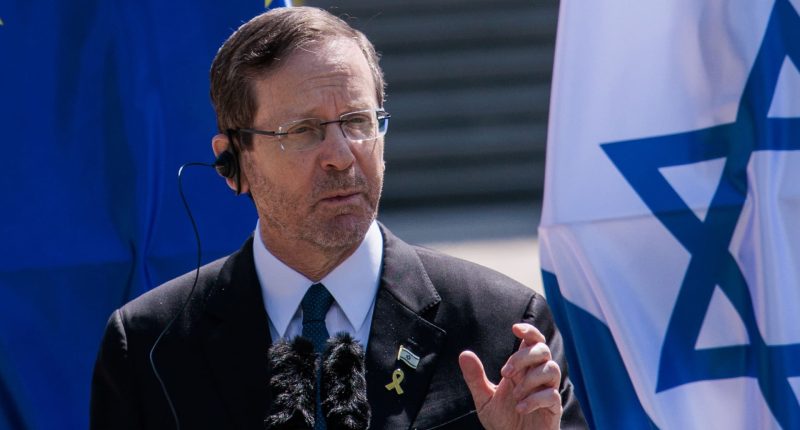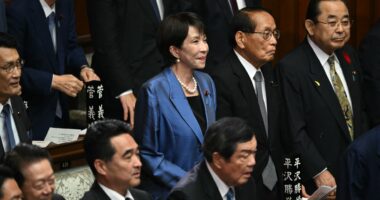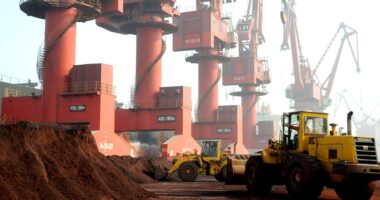Share this @internewscast.com
BERLIN, GERMANY – MAY 12: Israeli President Isaac Herzog speaks during a press conference with German President Frank-Walter Steinmeier (not pictured) at Schloss Bellevue presidential palace on May 12, 2025 in Berlin, Germany.
Carsten Koall | Getty Images News | Getty Images
Israeli President Isaac Herzog said Wednesday that his country was not pursuing regime change in Iran, and its attack on Tehran was aimed at eliminating its nuclear capabilities.
Speaking to CNBC’s Dan Murphy, Herzog said that regime change was “not an official objective of ours,” and the goal was “to remove the Iranian nuclear program.”
Herzog, who accused Tehran of “cheating” and “rushing to the bomb,” added that a “change in [regime] can also bring peace in the region.”
The International Atomic Energy Agency in a statement on June 9 urged Iran to “fully cooperate” with the agency, or else it would “not be in a position to provide assurance that Iran’s nuclear programme is exclusively peaceful.”
On June 13, Israel launched a series of airstrikes against Iran, targeting locations it said were related to the country’s nuclear program. Both sides have since been trading strikes.
“One has to be tough sometimes in order to remove imminent threats. That’s exactly what we’re doing,” Herzog told CNBC, adding that the strikes on Iran have had a genuine impact on its nuclear program.
U.S. president Donald Trump reportedly said on Wednesday that Iran was “very close” to having a nuclear bomb, putting him at odds with the testimony of his National Intelligence Director Tulsi Gabbard gave to the U.S. Congress in March.
“The IC [intelligence community] continues to assess that Iran is not building a nuclear weapon and Supreme Leader Khamanei has not authorized the nuclear weapons program he suspended in 2003,” Gabbard said.
Earlier this week, the Group of Seven countries expressed support for Israel, while condemning Iran as “the principal source of regional instability and terror,” and reiterated that “Iran can never have a nuclear weapon.”
This was in contrast to China’s stance. In the aftermath of the Israeli attack, Chinese Foreign Minister Wang Yi said that Beijing “explicitly condemns Israel’s violation of Iran’s sovereignty,” and said that it supports Iran in “safeguarding its national sovereignty and defending its legitimate rights and interests.”
When asked if there was a diplomatic ramp off available to de-escalate the situation, Herzog said “there is actually a lot of back channel. National talks and dialogue with world leaders is actually quite intensive.”









